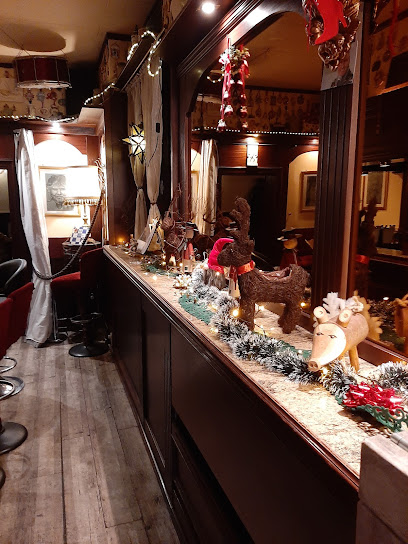
Cologne: A City of History and Modernity
Discover Cologne: A vibrant city where ancient history meets modern culture, offering iconic landmarks, world-class museums, and a lively atmosphere on the Rhine.
Cologne, or Köln as the locals call it, is a vibrant metropolis on the Rhine, boasting a rich 2,000-year history from Roman settlement to a modern cultural hub. The city is renowned for its iconic Cologne Cathedral, a UNESCO World Heritage site and a masterpiece of Gothic architecture. Beyond the cathedral, Cologne offers a diverse range of attractions, including Romanesque churches, world-class museums like the Museum Ludwig and the Romano-Germanic Museum, and the charming Old Town (Altstadt) with its traditional breweries. Cologne's spirit is defined by its lively atmosphere, especially during Carnival, and its welcoming attitude towards diversity, making it a must-visit destination in Germany. Explore the city's unique blend of historical landmarks and contemporary culture, from the Hohenzollern Bridge adorned with love locks to the innovative Rheinauhafen district.
A brief summary to Cologne
- Cologne, DE
- Visit website
Local tips
- Try Kölsch, the local beer, served in traditional Stangen (small, cylindrical glasses) at a Brauhaus in the Altstadt for an authentic Cologne experience.
- Visit during Carnival (usually in February) for a unique cultural experience filled with parades, costumes, and Kölsch beer.
- Climb the Cologne Cathedral's South Tower for panoramic city views, but be prepared for a strenuous climb up 533 steps.
- Explore the Rheinauhafen district to see modern architecture and enjoy waterfront views along the Rhine.
- Purchase a KölnCard for free public transportation and discounts on museums and attractions, making it easier to explore the city.
Getting There
-
Walking
From the Köln Hauptbahnhof (Cologne Central Station), the Cologne Cathedral is directly adjacent and easily accessible on foot. Exit the station following signs for the Dom (Cathedral). The main entrance is on the Domplein (Cathedral Square). Be aware of crowds, especially during peak tourist season and around major events.
-
Public Transport
Cologne's public transport system is extensive. If arriving at a station other than the Hauptbahnhof, take the U-Bahn (subway) or tram to the Dom/Hauptbahnhof station. Many lines serve this central hub. From there, follow the walking directions. A single ticket within the city zone (1b) costs approximately €3, but a day ticket (€8.80) may be more economical if you plan to visit multiple attractions.
-
Taxi/Ride-Share
Taxis and ride-sharing services are readily available throughout Cologne. Request a ride to the Dom/Hauptbahnhof. Be aware that traffic around the Cathedral can be congested, especially during peak hours and events. A short taxi ride from within the city center will typically cost between €10-€15. Parking near the cathedral is very limited and expensive.
-
Driving
Driving directly to the Cologne Cathedral is not recommended due to extremely limited parking and pedestrianized zones. The nearest parking garages are Q-Park Börsenplatz and Q-Park Quincy/Breite Straße, both within a short walking distance. Expect to pay around €2.20 per hour, with daily maximum rates varying from €7-€12 depending on the day of the week. Consider using a Park + Ride (P+R) facility on the outskirts of the city and taking public transport to the Dom/Hauptbahnhof to avoid traffic and parking hassles; P+R parking costs approximately €1.00-€2.50/day.
Discover more about Cologne
Iconic landmarks you can’t miss
Cologne
0.0 km
Discover Cologne: A vibrant German city where ancient Roman history meets stunning Gothic architecture, world-class museums, and the lively spirit of the Rhineland.
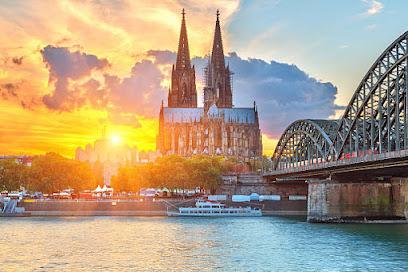
Historisches Rathaus der Stadt Köln
0.1 km
Discover Cologne's Historisches Rathaus, a magnificent blend of Gothic and Renaissance architecture, and Germany's oldest city hall, steeped in history and civic pride, in the heart of the vibrant Old Town.
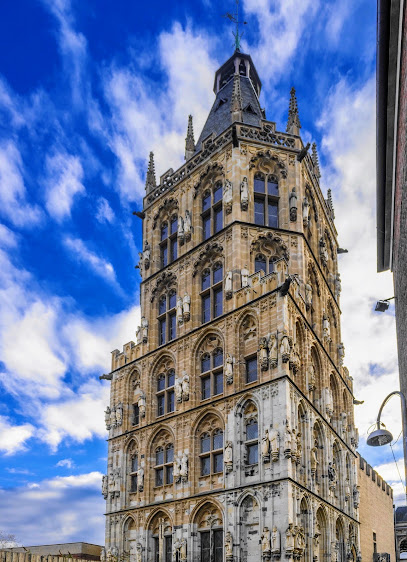
Heumarkt
0.1 km
Experience Cologne's vibrant heart at Heumarkt, a historic square offering a blend of culture, cuisine, and festive events, all within easy reach of iconic landmarks.
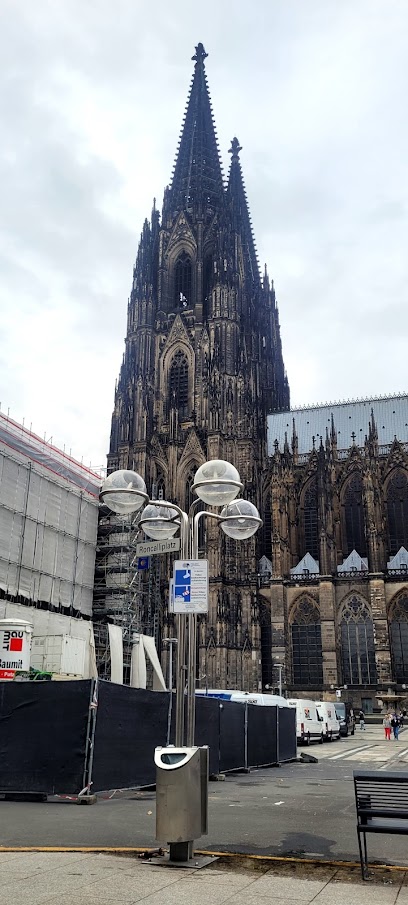
Jan von Werth-Brunnen, Köln
0.1 km
Discover Cologne's heart at the Jan von Werth Fountain, a historic landmark in Alter Markt, where local legends and vibrant city life intertwine, offering a glimpse into the city's soul.
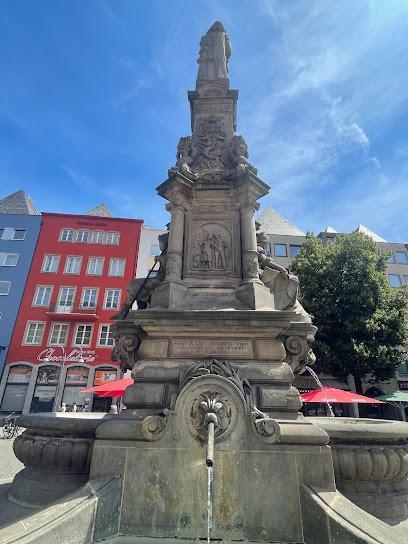
Equestrian statue of Friedrich Wilhelm III.
0.1 km
Discover Cologne's Prussian heritage at the Equestrian Statue of Friedrich Wilhelm III on Heumarkt, a historic square offering culture, events, and Rhineland charm in the heart of the city.
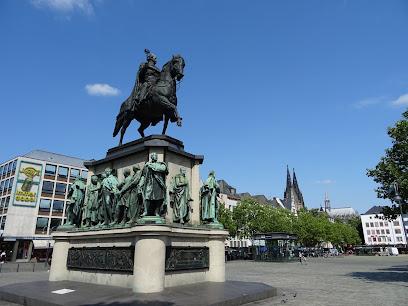
Old St. Alban
0.2 km
Explore the haunting ruins of Old St. Alban in Cologne, a powerful memorial to wartime suffering and a symbol of the city's enduring resilience in the heart of the Old Town.
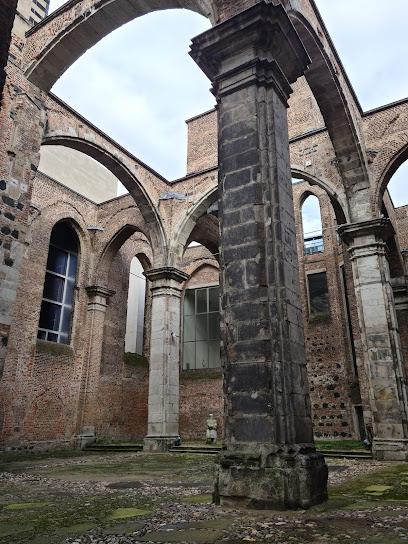
Heumarkt 43
0.2 km
Experience Cologne's vibrant heart at Heumarkt, a historic square blending medieval charm with modern energy, offering year-round events, culinary delights, and cultural experiences.
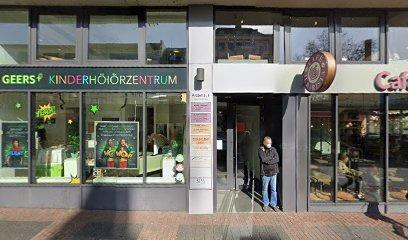
Barockfassade
0.2 km
Discover Cologne's architectural heritage at the Barockfassade, a beautifully preserved Baroque facade from 1696, offering a glimpse into the city's rich past and artistic evolution.
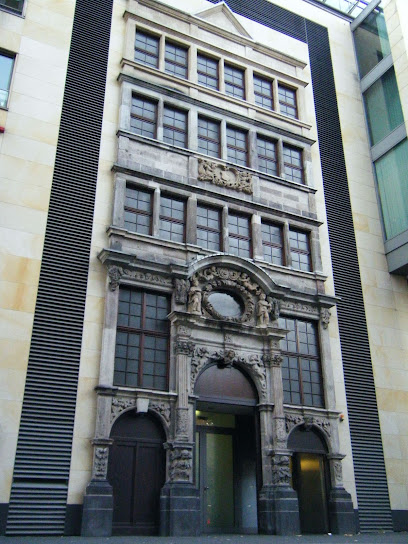
Der goldene Kupferstern
0.3 km
Experience Cologne's vibrant heart at Roncalliplatz, surrounded by iconic landmarks, bustling events, and the city's rich history and culture, offering an unforgettable adventure.
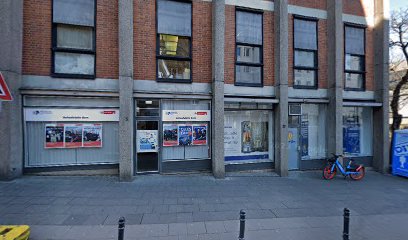
Ancient Roman Harbor Street
0.3 km
Explore Cologne's Ancient Roman Harbor Street: A captivating historical landmark offering a glimpse into the city's Roman past, showcasing its significance as a vital trading hub.
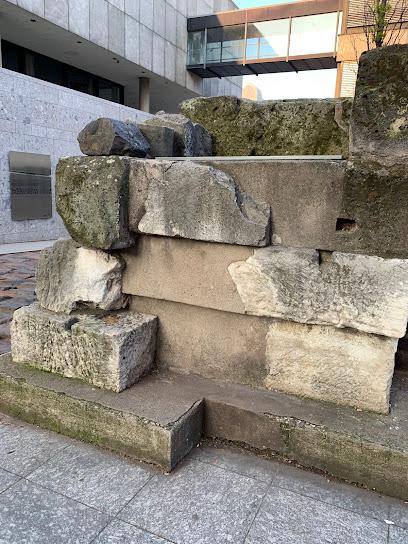
St. Maria im Kapitol
0.3 km
Discover the architectural beauty and historical richness of St. Maria im Kapitol, a stunning Catholic church in the heart of Cologne, Germany.
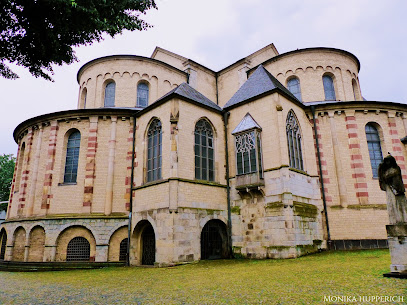
Paolozzibrunnen – Eduardo Paolozzi (1986)
0.4 km
Discover the Paolozzi Fountain in Cologne: a captivating blend of modern art, historical remnants, and playful interaction in the heart of the scenic Rheingarten park, a short walk from Cologne Central Station.
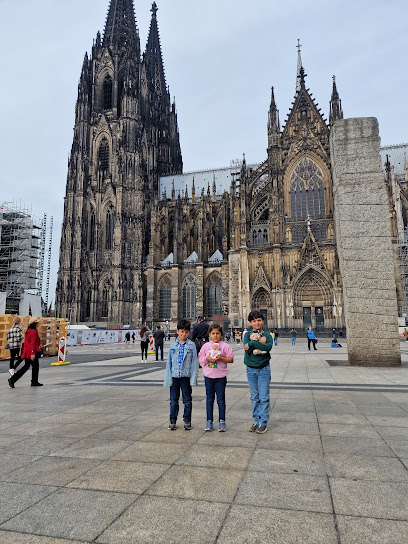
Guided Tours at the Cathedral
0.4 km
Experience the awe-inspiring grandeur of Cologne Cathedral, a UNESCO World Heritage site and Germany's most visited landmark, showcasing Gothic architecture and religious significance.
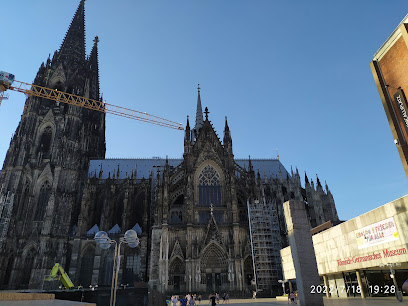
Overstolzenhaus
0.4 km
Discover the Overstolzenhaus in Cologne, a magnificent example of Romanesque architecture and a window into the lives of medieval merchants, nestled in the heart of the city's historic district.
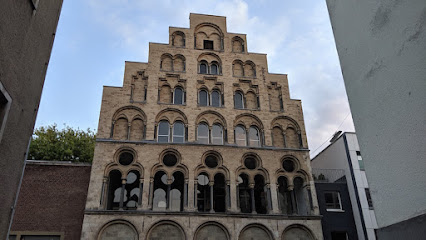
Roncalliplatz
0.4 km
Experience the heart of Cologne at Roncalliplatz, a vibrant plaza steeped in history, framed by the iconic Cologne Cathedral, and alive with cultural events year-round.
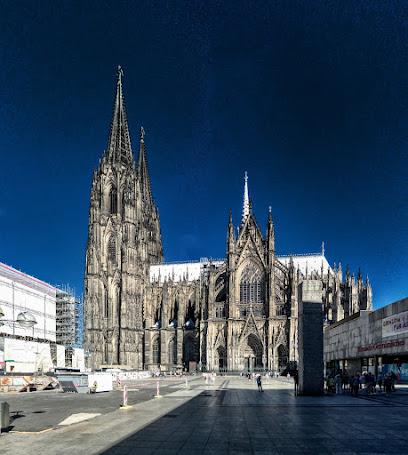
Unmissable attractions to see
Willi-Ostermann-Brunnen
0.1 km
Discover the Willi-Ostermann-Brunnen in Cologne, a stunning fountain that showcases the city's cultural heritage and artistic beauty.
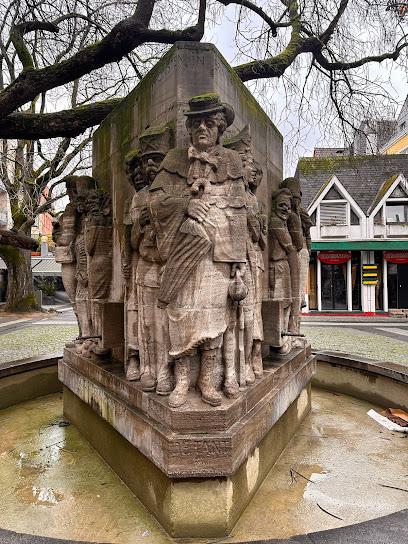
Brunnen Marsplatz
0.1 km
Discover the charm of Brunnen Marsplatz, Cologne's historical square filled with culture, stunning architecture, and vibrant local life.
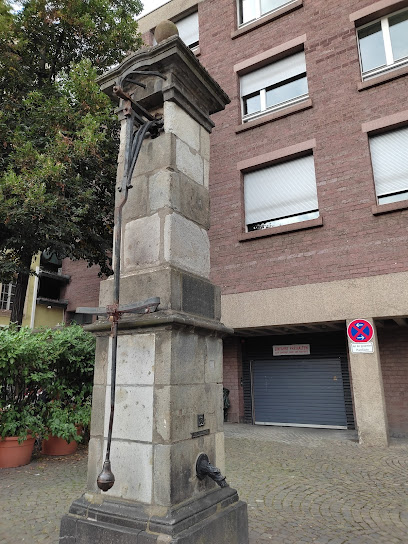
Tünnes und Schäl
0.1 km
Explore Tünnes und Schäl, a whimsical sculpture in Cologne that embodies local folklore and the city's vibrant cultural heritage.
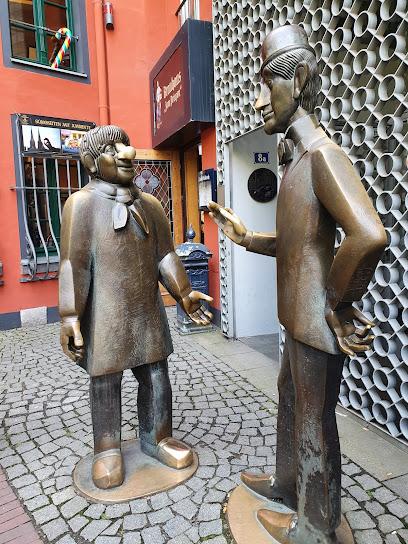
Schmitz Column
0.1 km
Discover the iconic Schmitz Column in Cologne's Alter Markt, a historical landmark that captures the essence of the city's rich heritage.
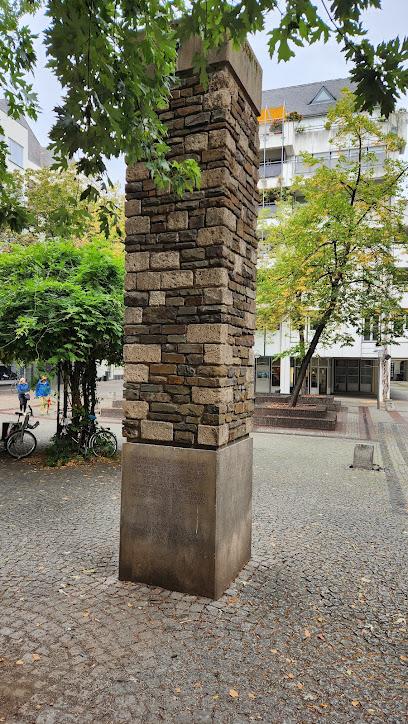
Alter Markt
0.1 km
Experience the vibrant culture and rich history of Cologne at Alter Markt, a lively square filled with cafes, shops, and stunning architecture.
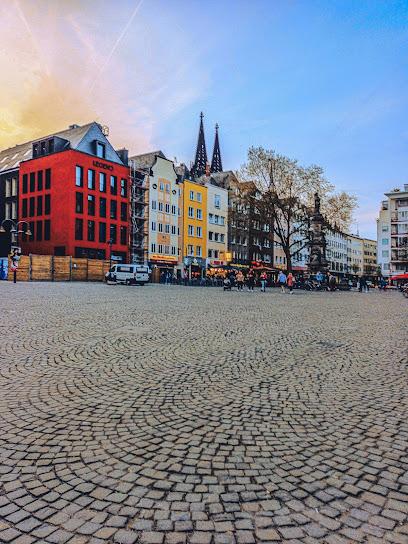
Old Market
0.1 km
Experience the vibrant culture and rich history at Cologne's Old Market, a historical square filled with culinary delights and stunning architecture.
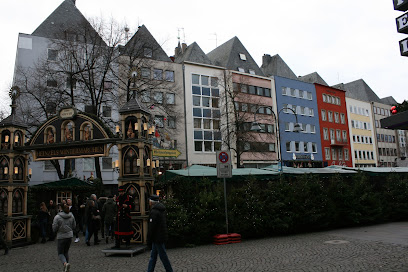
Time Ride
0.1 km
Experience Cologne's rich history like never before at Time Ride, where virtual reality meets captivating storytelling in a fascinating museum setting.
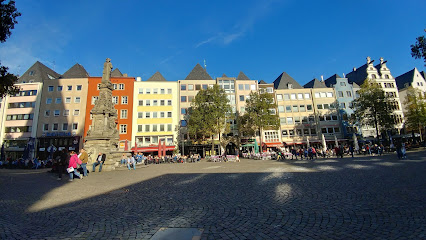
Buttermarkt
0.1 km
Experience the vibrant atmosphere and rich history of Buttermarkt, a must-visit square in the heart of Cologne perfect for relaxation and exploration.
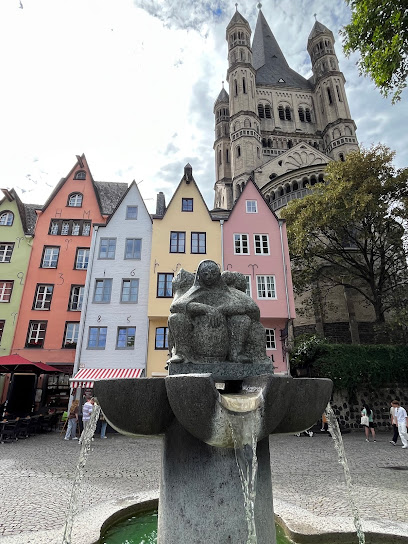
Great St. Martin Church
0.1 km
Discover the rich history and stunning architecture of Great St. Martin Church, a must-visit landmark in Cologne, Germany.
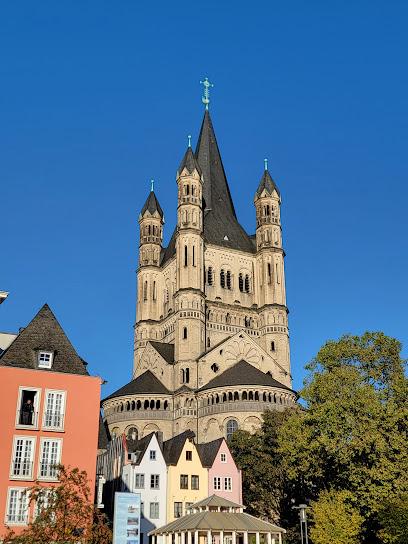
Wallraf-Richartz-Museum & Fondation Corboud
0.1 km
Explore the Wallraf-Richartz-Museum in Cologne for an unforgettable journey through European art history from the Middle Ages to the 19th century.
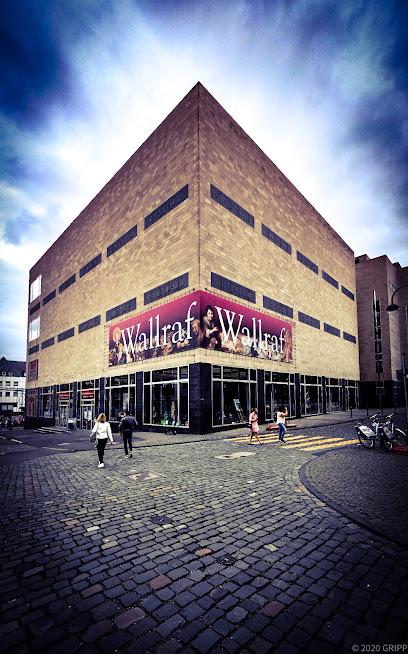
Papa Joe's Jazz Bar
0.1 km
Discover the heart of Cologne’s jazz scene at Papa Joe's Jazz Bar, where live music, great food, and vibrant ambiance await.
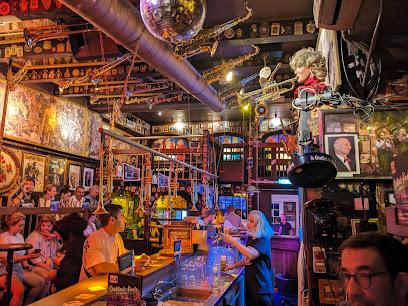
Hänneschen-Theater
0.1 km
Discover the enchanting world of puppetry at Hänneschen-Theater in Cologne, where captivating performances bring stories to life.
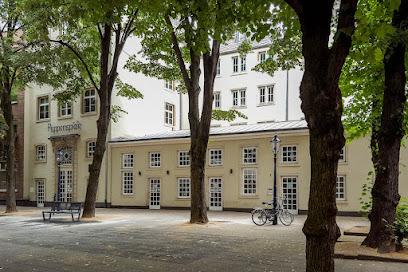
Fish Market
0.2 km
Explore the bustling Cologne Fish Market, where fresh seafood, local delicacies, and vibrant culture come together along the Rhine River.
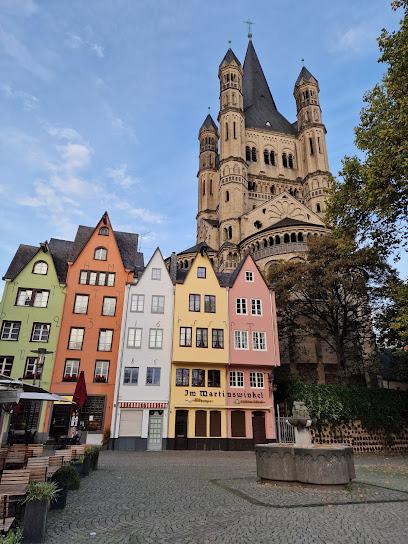
Duftmuseum im Farina Haus
0.2 km
Explore Cologne’s rich perfume heritage at the Duftmuseum im Farina Haus, where history and fragrance blend seamlessly for an aromatic experience.
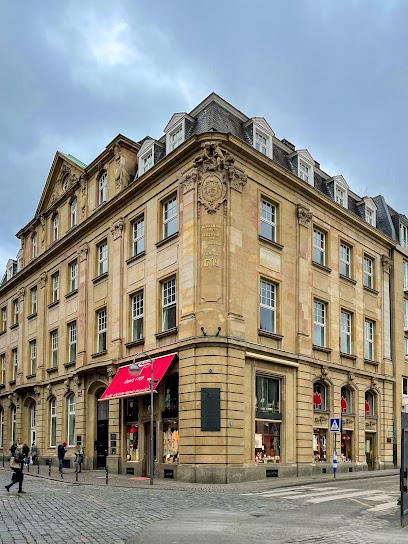
Old Town Cologne
0.2 km
Explore the enchanting Old Town Cologne, where history, culture, and culinary delights converge in a vibrant riverside setting.

Essential places to dine
Gilden im Zims “Heimat kölscher Helden”
0.0 km
Discover authentic German flavors at Gilden im Zims, a lively beer hall in the heart of Cologne offering delicious cuisine and local Kölsch.
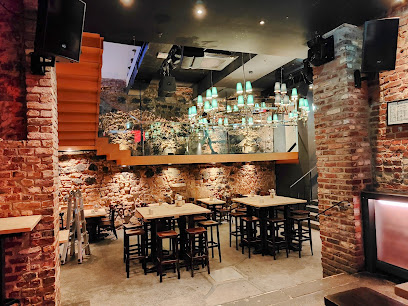
Servus Colonia Alpina
0.1 km
Discover the heart of Bavarian cuisine at Servus Colonia Alpina in Cologne – where tradition meets taste in every dish.
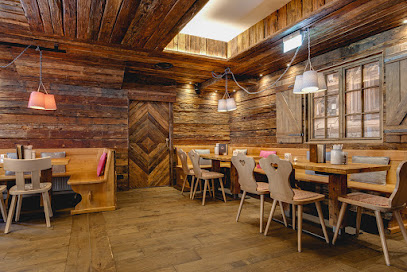
Keule
0.1 km
Experience authentic German flavors at Keule in Cologne - where tradition meets modern culinary artistry.
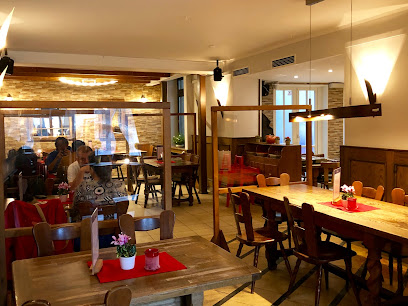
HACIENDA
0.1 km
Experience the vibrant flavors of Argentinian cuisine at Hacienda in Cologne - a perfect blend of tradition and innovation.
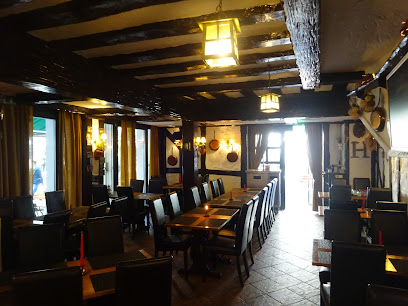
Hänneschen und die Pfeffermühle
0.1 km
Discover authentic German cuisine at Hänneschen und die Pfeffermühle in Cologne—where tradition meets taste.
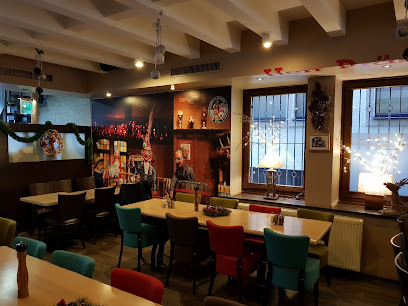
Brauhaus Sünner im Walfisch
0.1 km
Experience Cologne's brewing tradition at Brauhaus Sünner im Walfisch – where authentic flavors meet local charm.
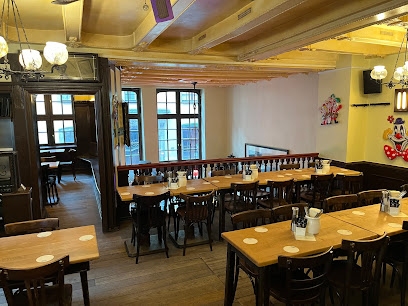
Restaurant Mama Leone
0.2 km
Savor authentic Italian flavors at Restaurant Mama Leone in Cologne – where every meal is a celebration of taste and tradition.
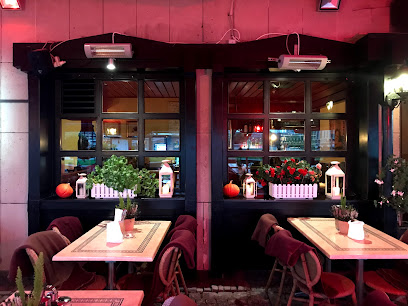
Haxenhaus
0.2 km
Experience authentic German flavors at Haxenhaus in Cologne – where tradition meets taste by the Rhine River.
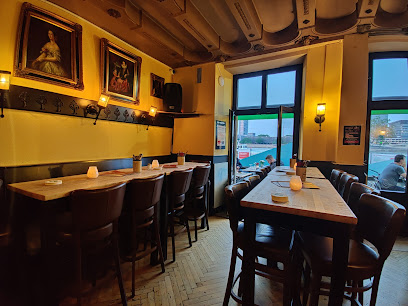
Peters Brauhaus
0.2 km
Discover Peters Brauhaus in Cologne - A lively brewpub serving authentic German cuisine and craft beers in an inviting atmosphere.
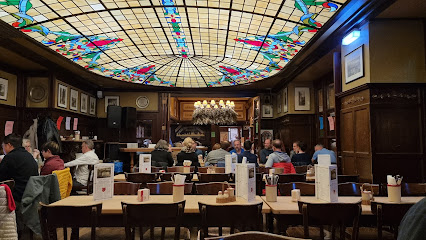
L'Osteria
0.2 km
Discover authentic Italian flavors at L'Osteria in Cologne's Innenstadt—where every meal is a celebration of taste and tradition.
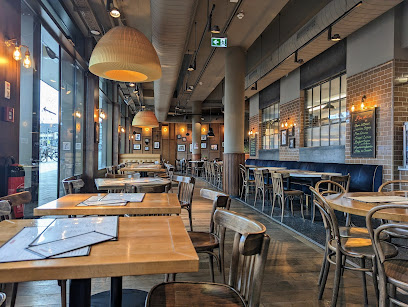
Restaurant Bellevue
0.3 km
Experience exquisite dining at Restaurant Bellevue in Cologne – where culinary artistry meets stunning river views.
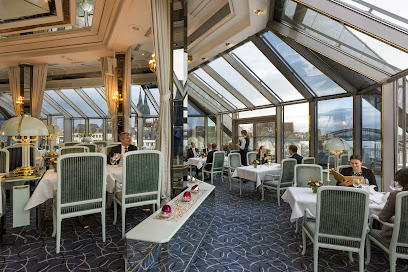
RheinZeit
0.3 km
Experience authentic German cuisine at RheinZeit in Cologne, where tradition meets modern dining in a vibrant atmosphere.
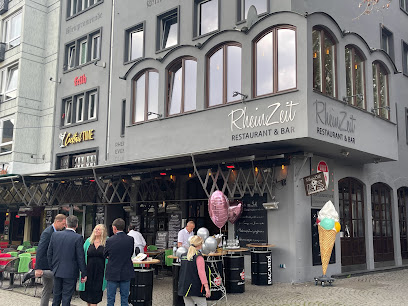
The Small Steakhouse
0.3 km
Experience top-quality steaks at The Small Steakhouse in Cologne - where flavor meets warmth in every bite.
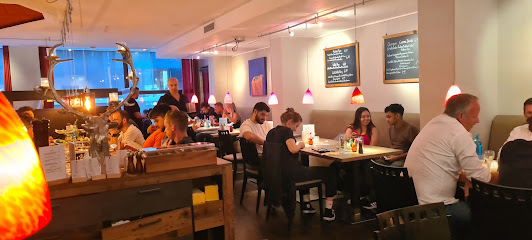
Oma's Küche
0.3 km
Experience authentic German cuisine at Oma's Küche in Cologne - where tradition meets taste in every dish.
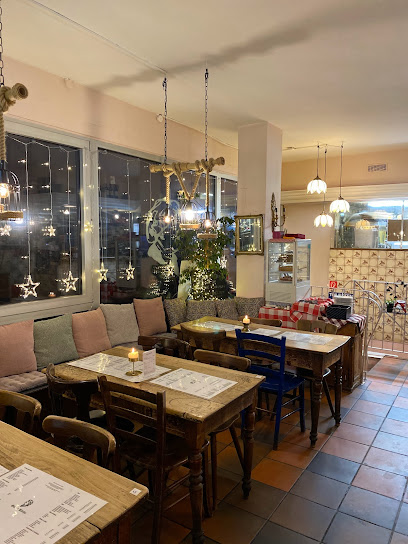
Em Krützche
0.3 km
Savor traditional German flavors at Em Krützche, a charming inn and restaurant in the heart of Cologne's Innenstadt district.
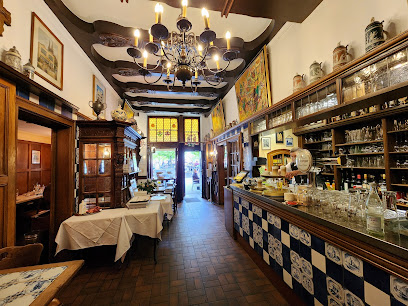
Markets, malls and hidden boutiques
Casado Store
0.2 km
Discover the heart of Cologne's fashion at Casado Store, where style meets elegance and every piece is a statement.
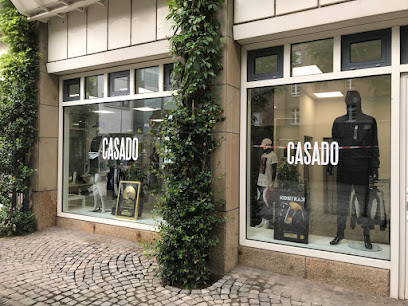
UNIQLO Köln
0.3 km
Explore stylish and affordable fashion at UNIQLO Köln, where contemporary design meets comfort in the heart of Cologne.
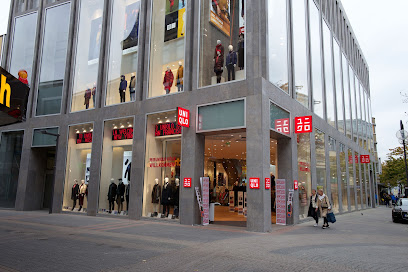
Close Up GmbH
0.3 km
Explore Close Up GmbH: Cologne's premier gift shop for unique posters and artistic treasures in the heart of the city.
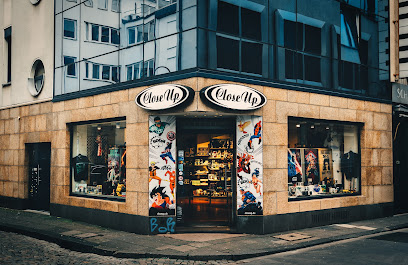
Elbenwald
0.3 km
Explore the enchanting Elbenwald gift shop in Cologne, where fantasy meets shopping with clothing, toys, and unique gifts for all ages.
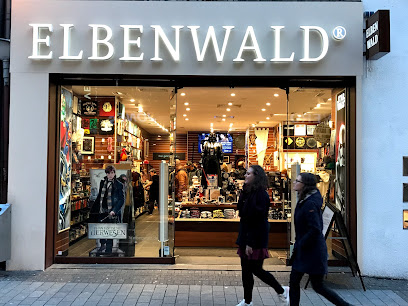
Pylones
0.3 km
Explore Pylones in Cologne for unique gifts and home goods, filled with creativity and playful designs to brighten your day.
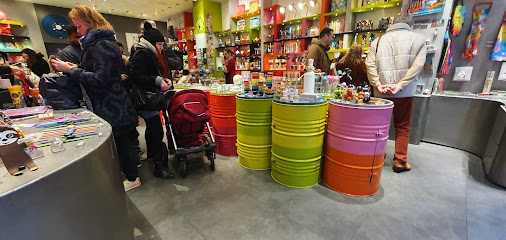
Früh Shoppen
0.3 km
Explore Früh Shoppen in Cologne for a delightful shopping experience filled with local treasures and unique finds.
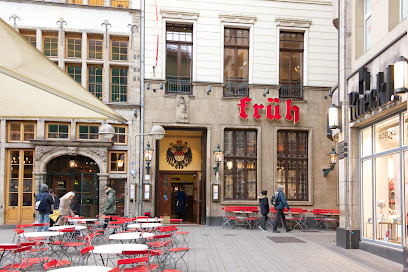
MUJI Cologne Store
0.3 km
Explore the MUJI Cologne Store for a unique selection of minimalist products that blend functionality with style, right in the heart of the city.
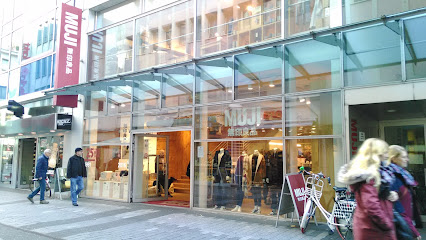
GALERIA Kaufhof
0.4 km
Dive into a shopping haven at GALERIA Kaufhof, Cologne's premier department store, featuring a diverse range of products in the heart of the city.
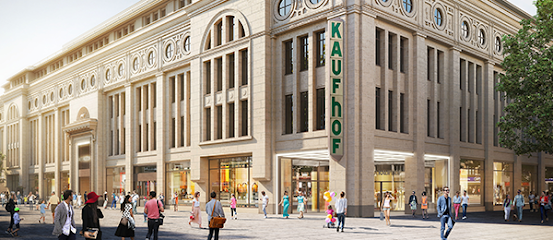
BOGNER Köln
0.4 km
Explore BOGNER Köln - where luxury fashion meets contemporary style in the heart of Cologne.
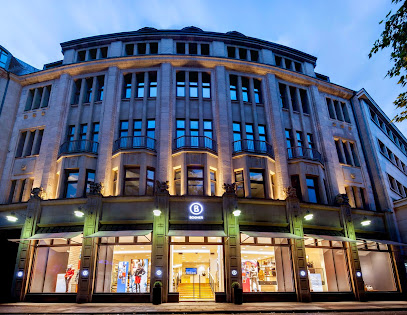
Victorinox Store Köln
0.4 km
Discover Swiss quality at the Victorinox Store in Cologne, featuring iconic knives, stylish luggage, and exclusive apparel in a modern shopping atmosphere.
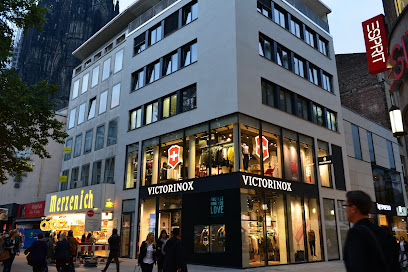
BVLGARI
0.4 km
Explore BVLGARI in Cologne for an exquisite range of luxury jewelry, fashion accessories, and timeless leather goods in a sophisticated setting.
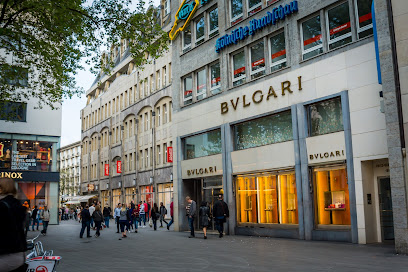
LOUIS VUITTON Cologne Store
0.4 km
Explore the luxury of Louis Vuitton in Cologne, featuring exquisite leather goods and fashion accessories in a stunning retail environment.
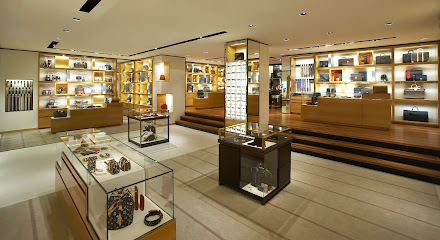
Domkloster 4 GmbH
0.4 km
Explore the heart of Cologne at Domkloster 4 GmbH, your go-to gift shop for unique souvenirs and local crafts that embody the city's spirit.
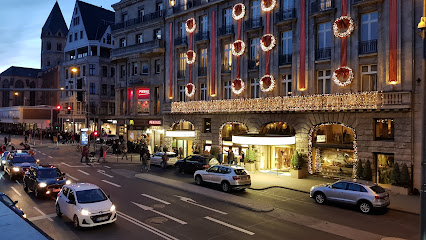
Manufactum Warenhaus
0.4 km
Explore the charm of Cologne at Manufactum Warenhaus, where quality gifts, clothing, and home goods await every discerning traveler.
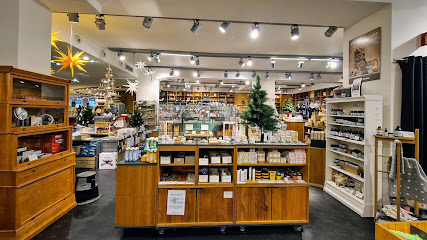
4711 Shop am Dom
0.4 km
Explore the iconic 4711 Shop am Dom in Cologne, where history meets modern fragrance in a delightful gift shopping experience.
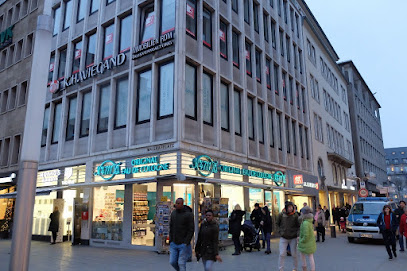
Essential bars & hidden hideouts
The Copper Pot - Köln
0.1 km
Experience Irish hospitality at The Copper Pot in Cologne, where lively ambiance, delicious cocktails, and live music await every visitor.
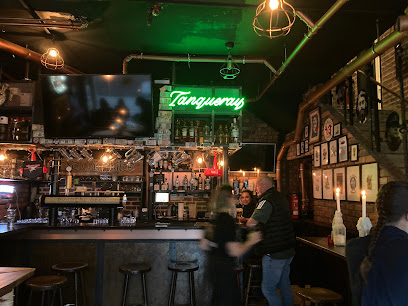
Sonderbar - Köln
0.1 km
Experience the best local brews and a vibrant atmosphere at Sonderbar, a must-visit bar in the heart of Cologne.
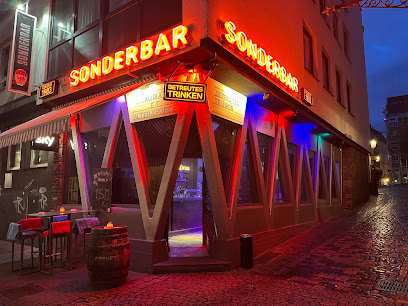
Papa Joe's Biersalon
0.1 km
Experience the vibrant pub culture of Cologne at Papa Joe's Biersalon, where great beer and hearty meals await in a lively atmosphere.
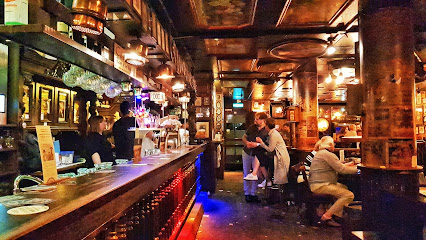
The Corkonian Irish pub
0.2 km
Experience the heart of Ireland at The Corkonian Irish Pub in Cologne, where traditional food, drinks, and live music create unforgettable memories.
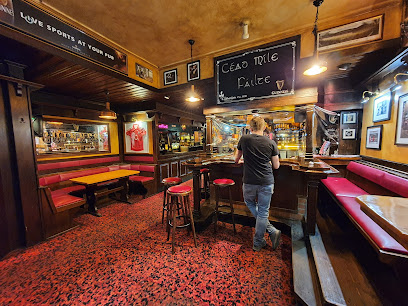
Barney Vallely's
0.2 km
Discover the essence of Ireland at Barney Vallely's, a lively pub in Cologne with authentic food, drinks, and vibrant entertainment.
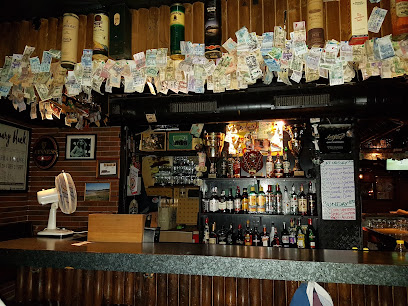
Bierbaum
0.2 km
Discover the lively Bierbaum bar in Cologne, where great drinks and a welcoming atmosphere blend seamlessly for an unforgettable night out.
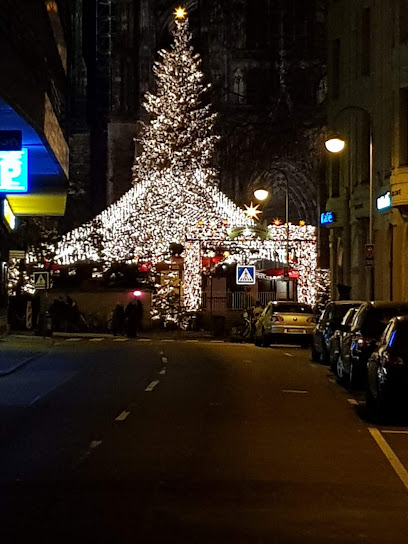
Piano Bar
0.3 km
Discover the enchanting Piano Bar in Cologne, where signature cocktails, live music, and a chic atmosphere create a perfect nightlife experience.
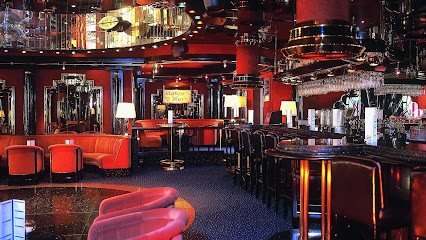
die kunstbar
0.5 km
Discover Die Kunstbar in Cologne: A vibrant bar blending art, music, and delicious drinks in the heart of the city’s nightlife.
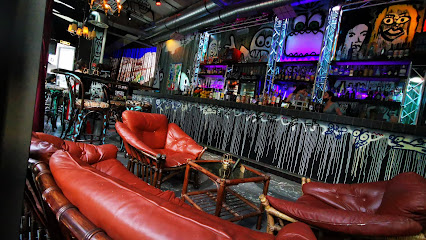
Legends Bar & Terrasse
0.7 km
Experience the ultimate cocktail bar in Cologne with stunning Rhine views, sophisticated atmosphere, and expertly crafted drinks at Legends Bar & Terrasse.
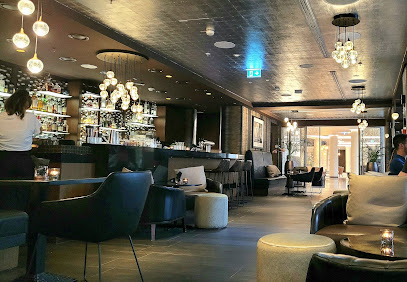
Papa Rudis - Köln
0.7 km
Discover the lively atmosphere and local brews at Papa Rudis, Cologne's must-visit pub for a memorable night out.
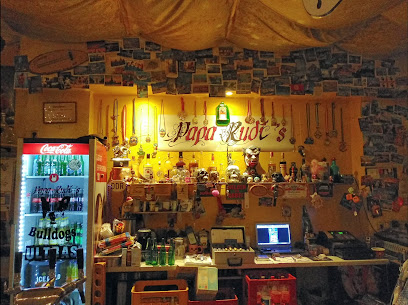
Plüsch Bar & Lounge (im Köln Marriott Hotel)
0.9 km
Experience luxury and relaxation at Plüsch Bar & Lounge in Cologne, where exquisite cocktails and elegant ambiance await you.
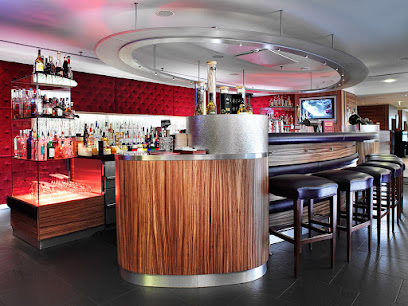
BAR BOTANIK
0.9 km
Discover BAR BOTANIK in Cologne, where lush botanical decor meets expertly crafted cocktails for an unforgettable nightlife experience.
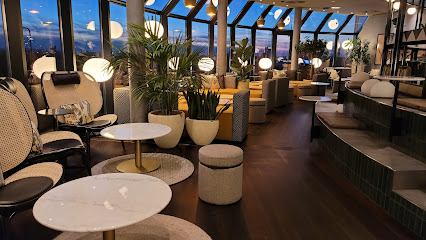
BON-Brauhaus ohne Namen
1.0 km
Experience the heart of Cologne's craft beer culture at BON-Brauhaus ohne Namen, a brewpub offering unique brews and delicious bites in a cozy setting.
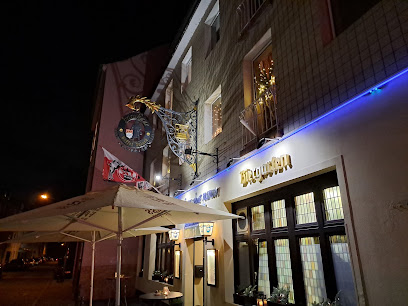
CAFE ESPECIAL Köln
1.1 km
Experience authentic Mexican flavors at Café Especial in Cologne, where vibrant dishes and a lively atmosphere create unforgettable dining moments.
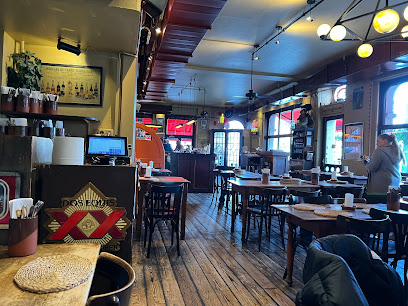
Constantin Pub
1.1 km
Discover the vibrant atmosphere and local charm of Constantin Pub, a must-visit destination for drinks and socializing in Cologne.
